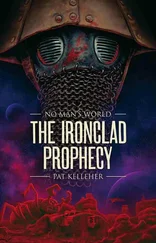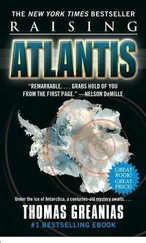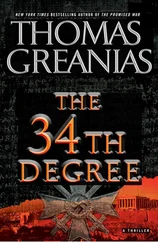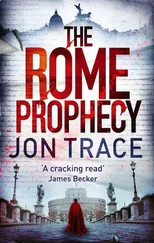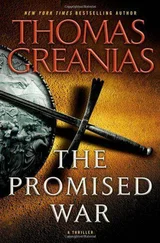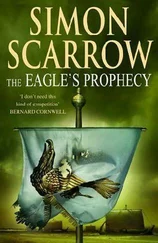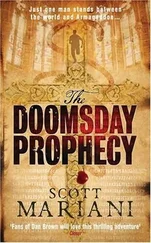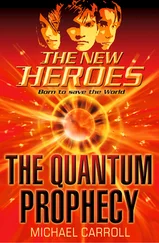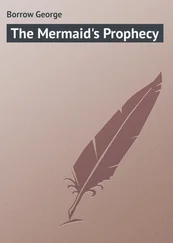"Yes, sir. Stuck it under her shoulder when we hustled her down to the holding room. She'll never know."
"Have a team follow her signal," Seavers ordered. "At some point she's bound to lead us to Yeats."
***
Serena leaned back in her seat and breathed a sigh of relief as Benito turned the limousine onto Connecticut.
"You OK, signorina?"
"Now that I'm breathing, yes. But I don't know where Conrad is."
Benito looked up in the mirror. "He was in that limo ahead of us back at the Hilton."
"No, there was a senator in that limo. I saw her get in."
"But Dr. Yeats was driving," Benito said. "He found me in the underground garage and told me to give you a message."
Serena sat on the edge of her seat. "Give it to me."
"He said he will meet you at Sarah's house."
***
As Conrad drove the senator's limousine, he listened carefully to the senator gossip with Lisa about some of the individual speakers at the breakfast even as she expressed being moved by the event itself. Lisa said very little. He had warned her that he was strapped with explosives and that any attempt to alert the senator or send a text message from her cell phone would blow them all up.
It worked until they crossed Washington Circle.
"What's that knocking?" the senator asked Lisa.
Conrad could see Lisa squirm in his rearview mirror.
"Could be the 87 octane level of the gas, ma'am," he told the senator, pulling into a Union gas station across the street from the Ritz-Carlton. "Let me check, maybe top off the tank with some premium."
"You should have done this earlier," the senator barked as he stepped out in his chauffeur's uniform and walked to the pump.
A minute later, the knocking got even louder inside the limousine.
The senator looked out the window and couldn't see the driver. "Find out where he is, Lisa."
But her aide started breaking down in tears for no reason.
"I don't have time for this today, Lisa."
The senator opened her own door and saw the gasoline hose in the limousine's gas tank, but no driver. The knocking, she realized, seemed to be coming from the trunk. She stepped out and walked to the trunk and opened it.
There was her driver, tied up and gagged.
***
By the time Seavers and his men arrived at the gas station, two D.C. cops were questioning the senator's aide, who apparently knew Yeats from their previous, albeit brief, relationship and provided a detailed description. An ATM camera across the street at the SportsClub fitness center, meanwhile, had captured Yeats on video.
Where are you going, Yeats? Seavers wondered as he climbed into his SUV and they drove off. To the second globe perhaps? To meet your lovely Serena?
"You set it up so I can track the nun on my own phone?" he asked the driver, a Marine named Landford from Detachment One.
"Yes, sir," Landford replied. "Check your Google Maps."
Seavers looked at his cell phone and followed the red blip that represented Sister Serghetti. It was moving up R Street past Montrose Park. Then it stopped.
He looked closely at the screen and clicked the zoom button. Slowly the fuzzy pixels sharpened and he realized he was staring down at a statue of some kind. He clicked on the image and a Web page automatically popped up with a picture of the Sarah Rittenhouse Armillary.
The armillary, he realized, staring at the image of the sun dial-like sphere on its marble pedestal. The second globe that Brooke had told him about, the one Yeats was after now, could be buried beneath the armillary!
"We're here, sir," said the driver in the mirror.
Seavers looked out his window to see the armillary a mere 20 or so feet away from the street, potentially holding a treasure but in plain daylight for all to see.
But there was no sign of Serena or Yeats.
He looked back down at his phone. The red dot-the GPS tracker-was still stationary, still blinking next to the armillary.
"She must be under the armillary," he said. "There must be another entrance, a sewer line or something beneath the monument. Get the drill team from Jones Point over here and send a plainclothes unit to sweep the park."
"Excuse me, sir," Landford said, hanging up his phone. "We picked up a call from the National Park Service station inside the park. An officer nabbed a man in a chauffeur's uniform fitting our APB."
A few minutes later Seavers entered a small, damp NPS station, which stunk from the dung of the horses in the stables. The watch officer escorted Seavers to a small holding cell, where the man in the chauffeur's uniform sat in the corner.
"Yeats!" Seavers shouted.
The head looked up and Seavers found himself looking into the wrinkled, warted face of a homeless man who had traded his rags for a suit.
"You imbeciles!" Seavers shouted to the watch officer.
But the watch officer was talking on his radio. "Copy that," he said and switched it off before addressing Seavers. "Looks like your man stole one of our horses, too."
CONRAD LEFT his police horse at the old Peirce Mill. He then walked along the creek at the bottom of the ravine in the direction of the cave. That cave, he was now convinced, would lead him directly to the final resting place of the terrestrial globe beneath the Sarah Rittenhouse Armillary.
As he crossed the creek, exhausted but determined, he thought of Washington's crossing at Valley Forge and the courage that saw America through the Revolution. It was that same courage and resolve which must have driven Washington on the fateful night in these woods when he stood up to the Alignment to save the republic.
***
George Washington galloped through the woods on his horse in the rain. It was almost three o'clock in the morning when he cleared the trees and came to an abrupt halt by the wharf in Georgetown.
Slowly Washington led Nelson to the old stone house, listening to the old war horse's hoofs clapping lightly in the night. He tied him to a hitching post and walked to the front door, anonymous in his civilian raincoat and hat. Even so, he could not hide his regal bearing as an officer and gentleman.
He knocked on the door three times. He paused a moment and again knocked. He tried the latch and the door opened on its own. Washington stooped to enter, his towering 6-foot-3-inch frame filling the doorway, and stepped inside.
The man he was to meet, his top forger, sat limply in a chair by the flickering fireplace, blood on his face and a bullet hole in his forehead. On the rough-hewn table before him were charts, maps, and documents.
"A treacherous affair, this new republic." A voice spoke from the shadows. "Who knows where it will end?"
Washington grew very still, then slowly turned his head.
Several feet away, beneath a doorway, stood a mountainous silhouette. He was a bull of a man, with a ruddy face and white, curly hair. His eyes were black and soulless. The man drew a pistol from his coat and aimed the barrel directly at Washington. "You should not have tried to fool the Alignment." His voice, though familiar, was not easy to place. "Now tell me where your copy of the treaty is."
"There on the table," Washington said warily. "I came to pick it up."
"Liar." The man emerged from the shadows.
"You!" Washington said, staring at one of his most loyal officers through the years. The man was a former Son of Liberty. A Patriot. One of the original members of the Culper Spy Ring who helped Washington beat the British in New York. His top assassin.
"This is a forgery," the assassin said as he picked up a document from the table and waved it in Washington's face.
Washington felt a surge of dread. He knows. How does he know?
Читать дальше

